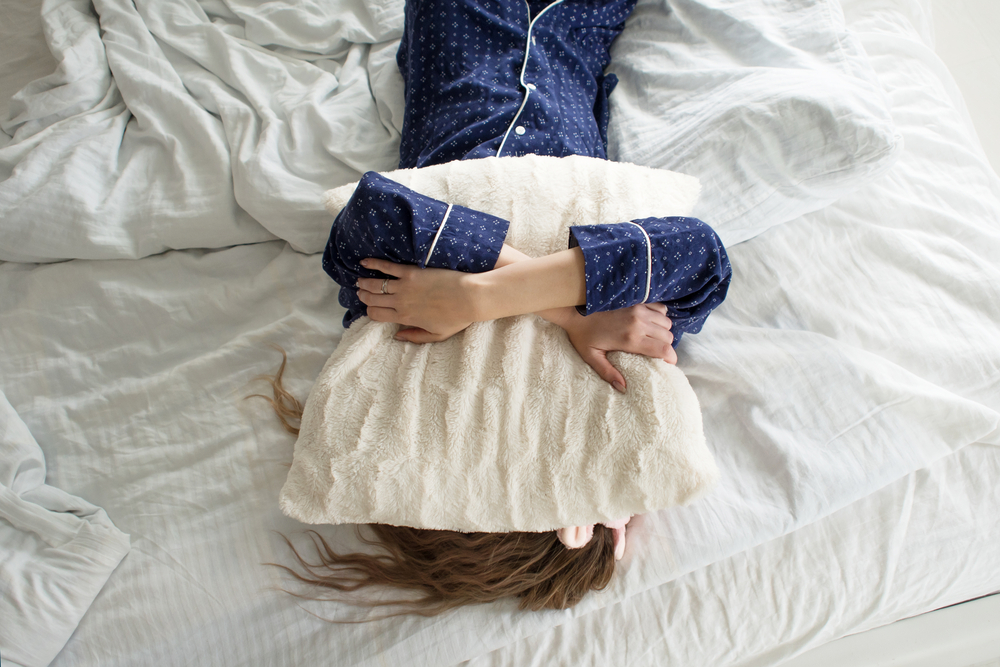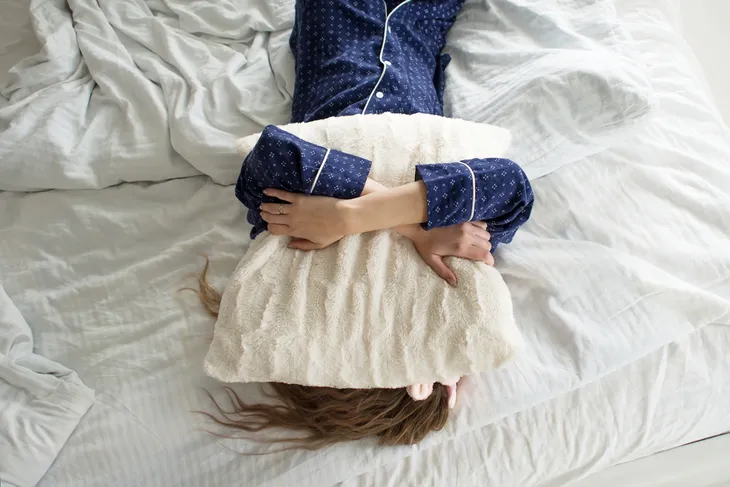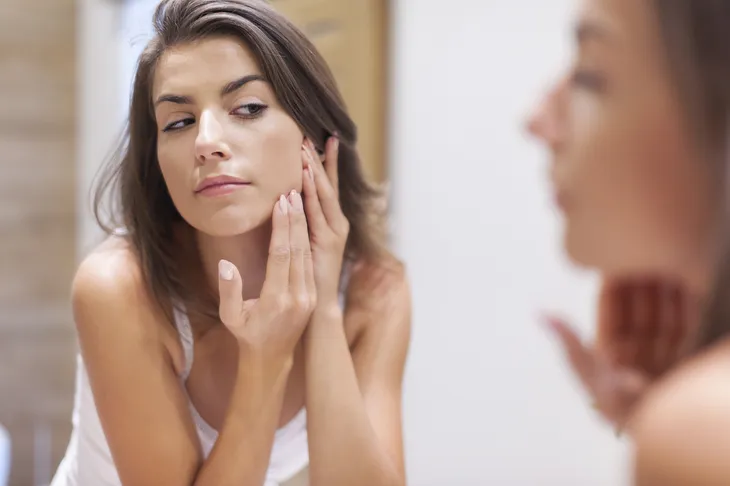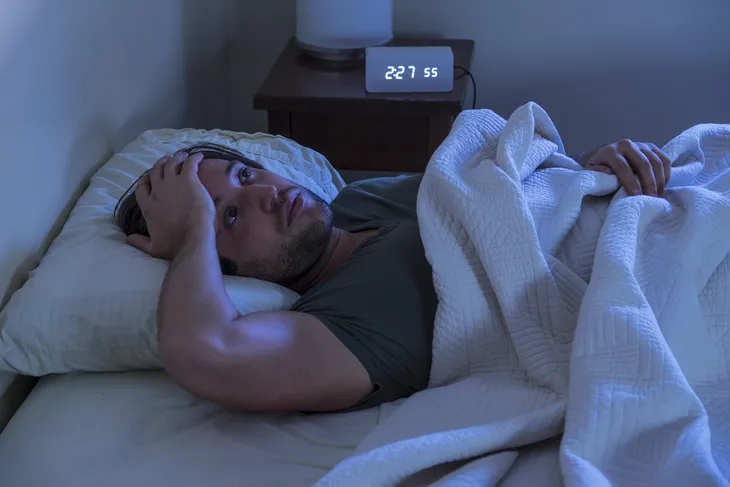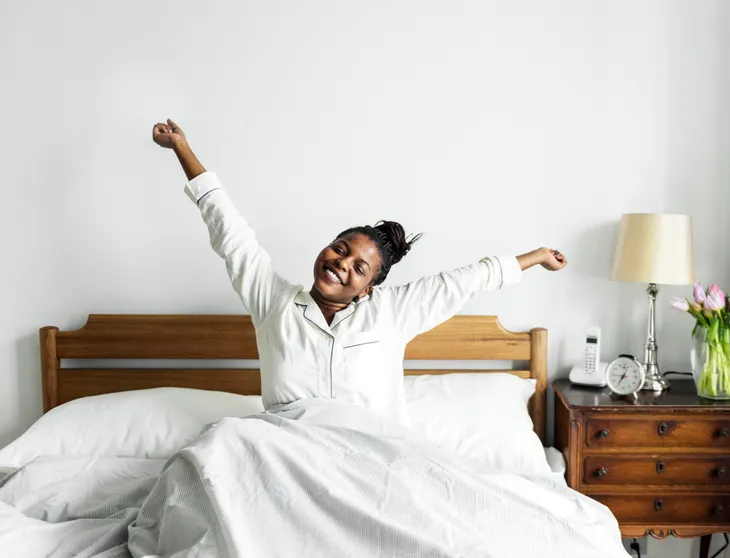- Poor sleep quality can affect your mood, memory, and critical thinking skills.
- It can also increase the risk of health concerns like heart disease, obesity, and hypertension.
- The signs of poor sleep quality can be easy to miss, but we’ve rounded up the tell-tale signs.
- Keep reading to learn how to spot the signs and get a better night’s sleep.
When it comes to getting a good night’s sleep, it’s not just about getting enough sleep. It’s also about getting quality sleep. If you wake up tired and groggy despite getting a full night’s sleep, then your sleep quality may be poor.
But how do you monitor sleep quality and go about improving it? First, let’s look at eight signs of poor sleep quality. Then, we’ll explore tried and true ways to sleep better.
You Fall Asleep Too Quickly
This might seem counterintuitive, but falling asleep too quickly is a sign of poor sleep quality. To put it another way, you aren’t getting enough sleep and have built up sleep debt. According to the Sleep Foundation, sleep debt “is the difference between the amount of sleep someone needs and the amount they actually get.”
When this happens, your body develops high sleep pressure — “an unconscious biological response that makes us want to go to sleep,” according to Little Ones. As a result, you fall asleep almost instantly because you’re sleep-deprived. Well+Good says this recovery sleep can be deep sleep, but that doesn’t mean it’s good sleep.
It Takes You Too Long To Fall Asleep
On the flip side, it isn’t a good sign if you don’t fall asleep quickly enough. According to The Sleep Doctor, it should take you somewhere between 10- and 20-minutes to fall asleep.
Similarly, the Sleep Foundation says taking more than 30-minutes to fall asleep is your body’s way of telling you that your sleep quality needs to improve. You want to strike a happy medium. If you don’t nod off within 30-minutes, then get up and do something relaxing for a while. For example, you could read a book.
You Can See It On Your Face
We bet you’ve heard of beauty sleep. As it turns out, there’s truth to the phrase. According to OnHealth, “sleeplessness takes its toll on your face” in a few ways. For one thing, poor sleep can trigger acne flare-ups. In fact, the source says poor sleep is “one of the three main acne triggers, along with stress and sweating.”
Additionally, the source calls puffy eyes and dark circles “hallmark signs of sleepiness.” It references a study that asked observers to analyze photos of two groups of subjects. One group of subjects got a full night’s sleep, while the other only got 5-hours. Observers said puffy eyes and dark circles were easy ways to spot those who didn’t get enough sleep.
You Wake Up During the Night
Waking up throughout the night is another tell-tale sign of poor sleep quality. Even if the time you spend asleep adds up to about 7- to 9-hours — the recommended amount of sleep per night, according to the Sleep Foundation — it’s an issue that it’s fragmented.
“If sleep is disturbed,” Well+Good says, “you might get too little of some sleep stages or the sleep cycles may become disrupted.” As a result, you might feel tired during the day even though you technically got enough sleep.
You’re Often Thirsty
Did you know that dehydration and poor sleep quality can go hand in hand? According to The Sleep Doctor, a recent study shows that insufficient sleep is “associated with an increased risk of inadequate hydration.”
This might have something to do with a hormone called vasopressin. The source says the body produces vasopressin during the late stages of sleep to “prevent dehydration.” So, not sleeping long enough and fragmented sleep can both affect the release of vasopressin. Consequently, you may feel thirsty often.
You Crave Junk Food
In addition to making you feel thirsty, a poor night’s sleep can also lead to craving junk food. According to Runner’s World, “There have been numerous studies that connect poor-quality sleep or insomnia with increased desire for not-so-healthy food.”
For example, the source says one study shows sleep deprivation is linked to craving “more energy in the form of calorie-dense food.” And it references another study that suggests your brain responds “differently to food odors when you are sleep deprived.” So, it may be harder to resist the delicious-smelling wafts from a donut shop when your sleep quality is poor.
You’re Regularly Sleepy During the Day
If you regularly feel sleepy in the daytime, then you may be experiencing excessive daytime sleepiness. According to the Sleep Foundation, excessive daytime sleepiness means you have trouble staying alert or an increased desire to sleep during the day.
While it’s normal to occasionally feel sleepy during the day, experiencing the sensation frequently is a sign of poor sleep. The source says, “it’s considered excessive daytime sleepiness when this happens almost every day for at least three months.”
You Feel Anxious and Stressed Out
Poor sleep quality can also affect your mood. According to the Sleep Foundation, feeling “more stressed out, emotionally exhausted, and angrier than usual” can indicate insufficient sleep. That’s because mental well-being can be affected by sleep.
As The Sleep Doctor explains, “Sufficient REM sleep allows your brain to process emotional information, which influences your mood, your memory, and your critical thinking skills.” If you’re feeling more anxious or stressed out than usual, then your body could be telling you to improve your sleep quality.
How To Improve Sleep Quality
Now that you know the signs of poor sleep quality, you probably want to know how you can take things into your own hands to get better sleep. Fortunately, there are several tried and true methods that can help improve sleep quality.
Even small changes to your sleep hygiene can help, so you likely don’t need to completely overhaul your lifestyle. Next, we’ll dig into the details of a few healthy sleep habits you can begin implementing now.
Adopt Pro-Sleep Habits During the Day
One thing you can do is tweak your daytime habits. For example, the Mayo Clinic recommends limiting naps to one-hour and avoiding them altogether late in the day. Similarly, the source says “regular physical activity can promote better sleep” — just don’t work out close to bedtime because that can make it harder to fall asleep.
Additionally, the Sleep Foundation suggests getting 15- to 30-minutes of sun early in the day. That habit can help “wake you up and reset your circadian rhythm,” according to the source. Of course, don’t forget to use sunscreen. And be mindful of your caffeine intake. The source recommends avoiding caffeine once you’re within five-hours of bedtime.
Create a Relaxing Environment
It can also help to turn your bedroom into a sleep-friendly environment. For starters, it can help to cut down on distractions that keep you from relaxing and sleeping. Consider black-out curtains to make sure sunlight doesn’t stream in too early. A fan or white noise machine can help drown out any noise.
If your pillow or mattress is uncomfortable, replace it. Since a cluttered or messy room can cause some stress, keeping your sleep space tidy can make a difference. And it’s important to find the right temperature for your comfort — The Sleep Foundation recommends 65-degrees. Basically, adjust anything that interferes with a good night’s sleep.
Follow a Regular Sleep Schedule
Consistency is another way to improve sleep quality. So, the Mayo Clinic says it helps to go to bed and wake up at the same times every day — even on weekends. Plus, consistent sleep has additional benefits. According to Healthline, studies show that irregular sleep patterns increase the risk for heart disease, obesity, and hypertension.
However, talk with your doctor if you continue having trouble getting quality sleep. They can help identify whether any underlying conditions are contributing to the issue and help you find a solution.
